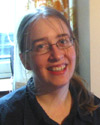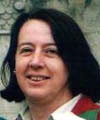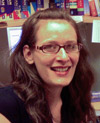 |
 |
 |
 |
 |
 |
| |
||||
|
Contributors |
|||
|
Frank Boers teaches EFL and applied linguistics at the Erasmus College in Brussels, Belgium. Until recently he was also head of the English teacher training programme at the University of Antwerp, but he decided to let go of that post in order to spend more time with his two young children. Family duties are also the reason why he seldom shows his face at international conferences but sends his research collaborators there instead. Frank obtained a PhD in the area of lexicology in 1994, but soon shifted his interest to the disciplines of psycholinguistics, cultural linguistics and applied linguistics. Most of his research endeavours in the latter domain evaluate the benefits of introducing Cognitive Linguistic insights to foreign language teaching. His work has appeared in journals such as Applied Linguistics, Language Teaching Research and System, and in various collective volumes. He has recently edited (in collaboration with friend and co-author Seth Lindstromberg) a book entitled Cognitive Linguistic approaches to teaching vocabulary and phraseology, to be published by Mouton de Gruyter.
|
|||
 |
I first became interested in learner's dictionaries more than 10 years ago while teaching English in Lithuania. I became a lexicographer with Cambridge University Press in 1999 and since then I have been involved in several ELT publications including Cambridge Advanced Learner's Dictionary, Cambridge Learner's Dictionary, the CD-ROM versions of the Macmillan English Dictionary and Macmillan Essential Dictionary as well as the Macmillan Schools Dictionary website. I have contributed to several websites – writing articles, designing web pages as well as adapting and creating interactive activities and games. I work from my home in Perthshire and most of my spare time is taken up with my sons Aonghas (Gaelic for 'Angus') and Duncan and walking my parents' border collie, Misty.
|
|||
 |
Kerry has a first degree in computational linguistics and an MA in theoretical linguistics from the University of Manchester, specialising in syntactic theory. For several years she worked as a researcher at Manchester and Essex universities, where in connection with European projects on machine translation, she was involved in computational lexicography, co-ordinating research in computational descriptions of compounds and collocations, and presenting her work in various international academic contexts. In 1993 she joined Cambridge University Press as a lexicographer/editor and grammar consultant, and worked on a large number of Cambridge learner's dictionaries, including the English Pronouncing Dictionary, the Cambridge International Dictionary of Phrasal Verbs and the Cambridge Learner's Dictionary in print and CD-ROM versions. In June 2001 Kerry moved to York where she now works as a freelance editor/lexicographer and is involved in a range of dictionary and grammar projects. Among the publications she has contributed to are Advanced Grammar In Use (2nd Ed.) and the Cambridge Advanced Learner's Dictionary for Cambridge University Press, the Collins COBUILD Elementary Grammar (2nd Ed.), Macmillan Phrasal Verbs Plus and the Macmillan School Dictionary. As well as being the regular author of the MED website's 'Word of the Week' column, she regularly writes for MED Magazine and co-authors grammar reference material for onestopenglish. Most of her spare time is spent looking after her two young sons Tom and Sam, though she enjoys walking, swimming and any opportunity to travel.
|
|||
 |
Like most people who write dictionaries for a living, I became a lexicographer by accident. After several years working in Italy and Scotland as an ELT teacher and course organiser, and as a translator and teacher of Italian, I was looking for a change. In 1990, a friend spotted a job ad for bilingual lexicographers at Longman. I applied and got the job, and discovered something I had never suspected – that dictionaries are written by people like me. After two years at Longman, I moved to COBUILD, where I worked on monolingual learner's dictionaries. Since leaving COBUILD in 1999 to work freelance, I have contributed to a variety of monolingual and bilingual learner's dictionaries, and for several years I wrote a weekly web article about English. When I'm not slaving over a hot dictionary entry, I like to spend my time gardening, and enjoying the company of my husband and two children. I also sing in a choir and go to yoga classes, though despite many years of trying I still can't manage the lotus position.
|
|||
| Meet the Editor | ||||
 |
Sharon Creese
I have a strong editorial background having worked as a journalist, technical writer and editor in fields ranging from the automotive and engineering industries, to finance, healthcare and education. As part of my Latin American Studies degree, I lived for a year in Colombia, working with a local children’s charity. I recently completed an Applied Linguistics Masters degree at the University of Newcastle, focusing on bilingualism among Spanish/indigenous-language speakers in Latin America. |
|||
Cover photographs courtesy of BANANASTOCK (New word of the month) |
||||
|
|
||||